In the first part of this series looking back at the life of legendary Brazil international Garrincha, we saw what life was like in his hometown of Pau Grande. In the decade between joining Botafogo in 1953 and becoming the star of a triumphant World Cup win in 1962, plenty in Garrincha’s life changed forever – but never his home.
Manuel Francisco dos Santos was born in Pau Grande, south-east Rio de Janeiro, on 28 October 1933 (though his father, Amaro, erroneously filled in the date as October 18 on the birth certificate). Bowlegged, a spinal deformity left his right leg bent outwards, his left shorter and curved inwards. Tiny and sweet, young Manuel was unstoppable.
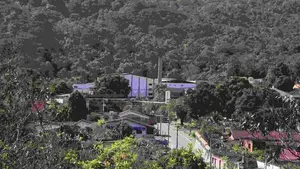
He went everywhere barefoot, always in the same shirt and pair of cut-off trousers. Before football - and women - became his passion, he spent most of his time diving at the river or chasing birds. Something of a trickster, he was always a free spirit with a unique outlook on life. His sister, Rosa, saw in him the characteristics of a common bird from region: The Garrincha. The nickname stuck.
The young Garrincha quickly developed a love of football and would spend much of his days playing on the dirt pitches with neighbours and colleagues from the local textile factory, often playing a number of matches in one day. For most, the time would come to work and games would end as both sides headed back to the shop floor. But for Garrincha work quickly became little more than a chance to get some much-needed shut-eye. He’d spend hours sleeping soundly amid the defending noise of the factory machines.
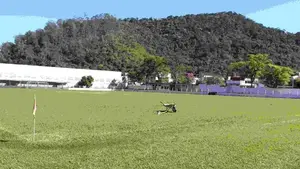
He would sleep openly, making no attempt to pull the wool over the eyes of his colleagues or bosses. He would never be fired, they needed him too much – not for his efforts in the factory, but for his dazzling performances for the company’s football team.
Esporte Clube Pau Grande, an amateur club owned by Garrincha’s bosses at America Fabril. was one of the best teams in all of south-east Rio, thanks almost solely to the 'lazy' who attended work only for rest of to flirt with female colleagues. So dazzling were the bent-legged dribbles that a nearby factory eventually poached the slipshod maverick. Serrano had a team in the Petropolitana Football League and paid him a symbolic wage in what proved the first contract ever signed by Garrincha. He was promised a token bonus per game (paid in the now extinct cruzeiro currency) plus food and drink.
But Garrincha could not be caged. He flew the nest after just three month, tired of his new surroundings in nearby Petropolis. He could only find happiness beneath the hills of Rio de Janeiro, back in Pau Grande. It was a decision that would change the course of his life. In 1952, Botafogo defender Araty visited the village to act a guest referee in a local match. When the bow-legged winger picked up the ball for the first time, Araty couldn’t believe his eyes.
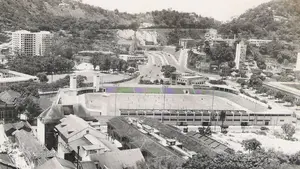
He spoke at length with Garrincha but it was not until 1953 that Mane – short for Manuel – finally appeared at the Botafogo headquarters for a trial. In his first training session with the professional team, he was put up against Brazil international Nilton Santos, who later admitted never before had he encountered a winger who could beat him with such ease – let alone one who was bowlegged.
Garrincha physical deformity had caused concerns at previous clubs, with both Vasco and Fluminense rejecting the chance to take him on after trials. It appeared fate had decided he would play for the lone star of Botafogo. His official debut was unforgettable.
Coach Gentil Cardoso’s side were trailing 2-1 to Bonsucesso in the pouring rain when Garrincha stepped up to take a vital penalty and stroked it home as if he back on the dirt-fields of Pau Grande, ignoring the taunts of opposition goalkeeper Ary. The match became the Garrincha show as he went on to hit a hat-trick as Botafogo stormed to a 6-3 win.
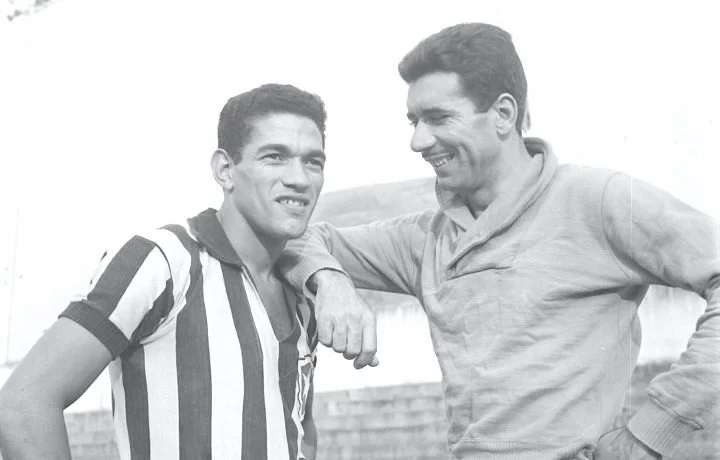
But despite his match-winning heroics, Garrincha had already developed a reputation for being a player who did nothing other than dribble his opponents. In 1955 he received his first call-up to the Brazil squad for the goalless draw against Chile and two years later made history by leading Botafogo to their first title victory at the Maracana stadium, which had been built for the 1950 World Cup. The 6-2 victory over on Fluminense in 1957 is, to this day, the biggest win in the final of the Rio State Championship. Nilton Santos, whose humbling on the training field had given birth to Garrincha’s career, told the opposing goalkeeper that day he would tear a piece from his shirt for every goal. He ended the match with his jersey in tatters.
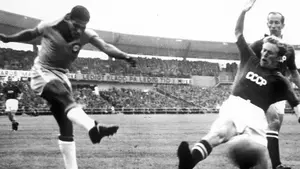
But it was a year later that Garrincha went to the next level, when he joined Brazil in Sweden for what would be the start of a dynasty as Brazil won their first World Cup title. Brazilians followed the matches on radio, and Garrincha followed the matches by womanising. Years later, he would discover that he conceived a son during that trop. He was a revelation. The secret was out. Brazil had something special, in addition to a teenage Pele.
It was just the beginning. Four years later Brazil arrived in Chile as the favourite for the tournament, but an injury to Pele caused panic. The responsibility would fall on the hunched shoulders of Garrincha. And he proved he could lead. He hit goals with both feet and left scores of full-backs humiliated as he went back and beat them over and over again.
He also won the affections of singer Elza Soares, who became the love of his storied life. A two-time world champion, celebrated by many as one of the finest footballer on the planet, Garrincha was still living in Pau Grande. Spending much his time back on the dirt pitches on perched at the bar.
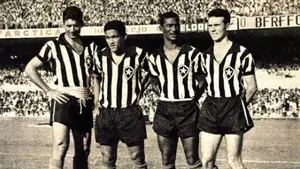
Later that year, would turn in what proved to be the final spectacular display of his career. This time Flamengo were the victims as Garrincha once again led the club to a state title, scoring two and laying on the other in a 3-0 victory. But his end had already begun. The pain he felt in his knee was becoming more sever with every match.
The little bird’s wings had been clipped, and he soared back to Pau Grande with less frequency.
r />
- Goal